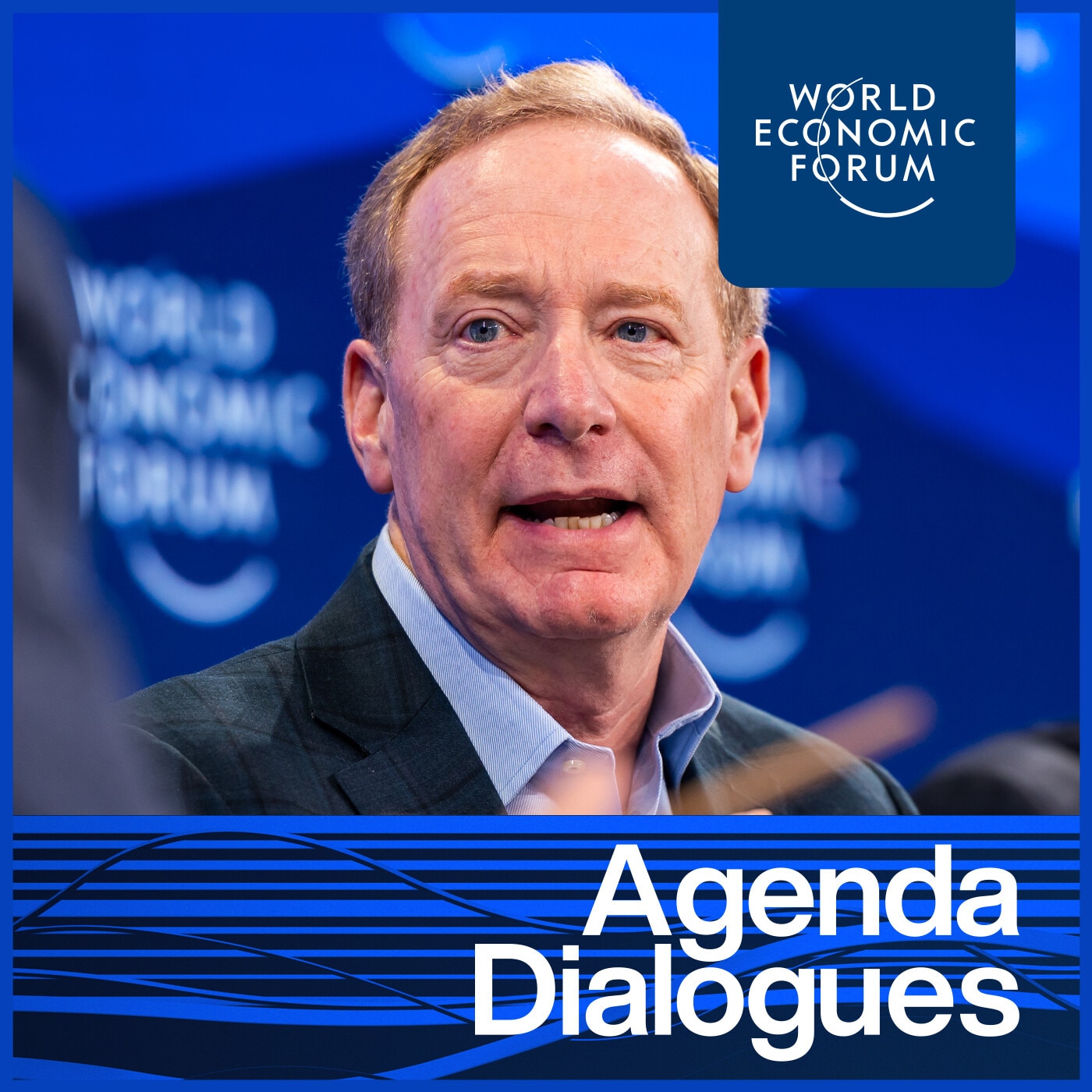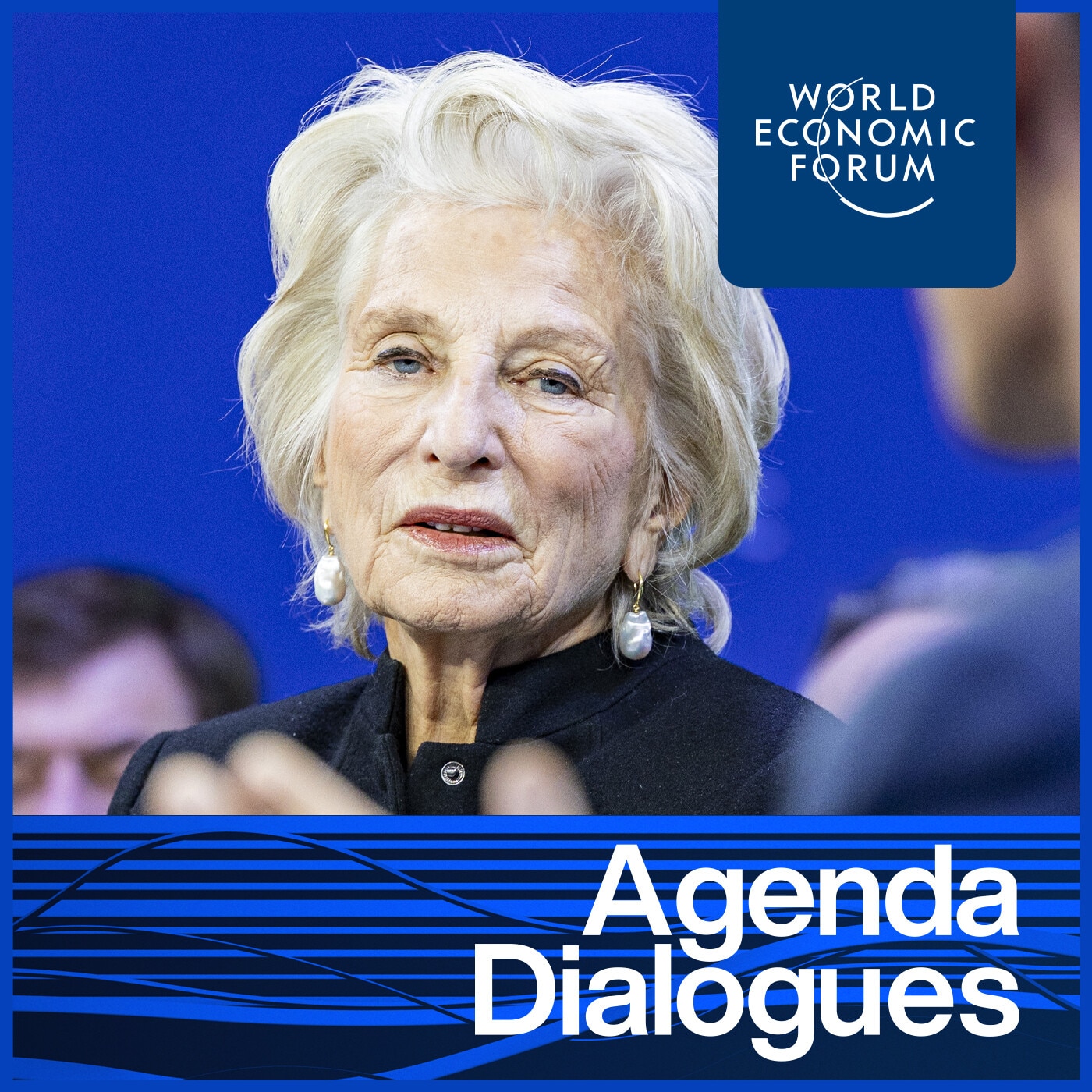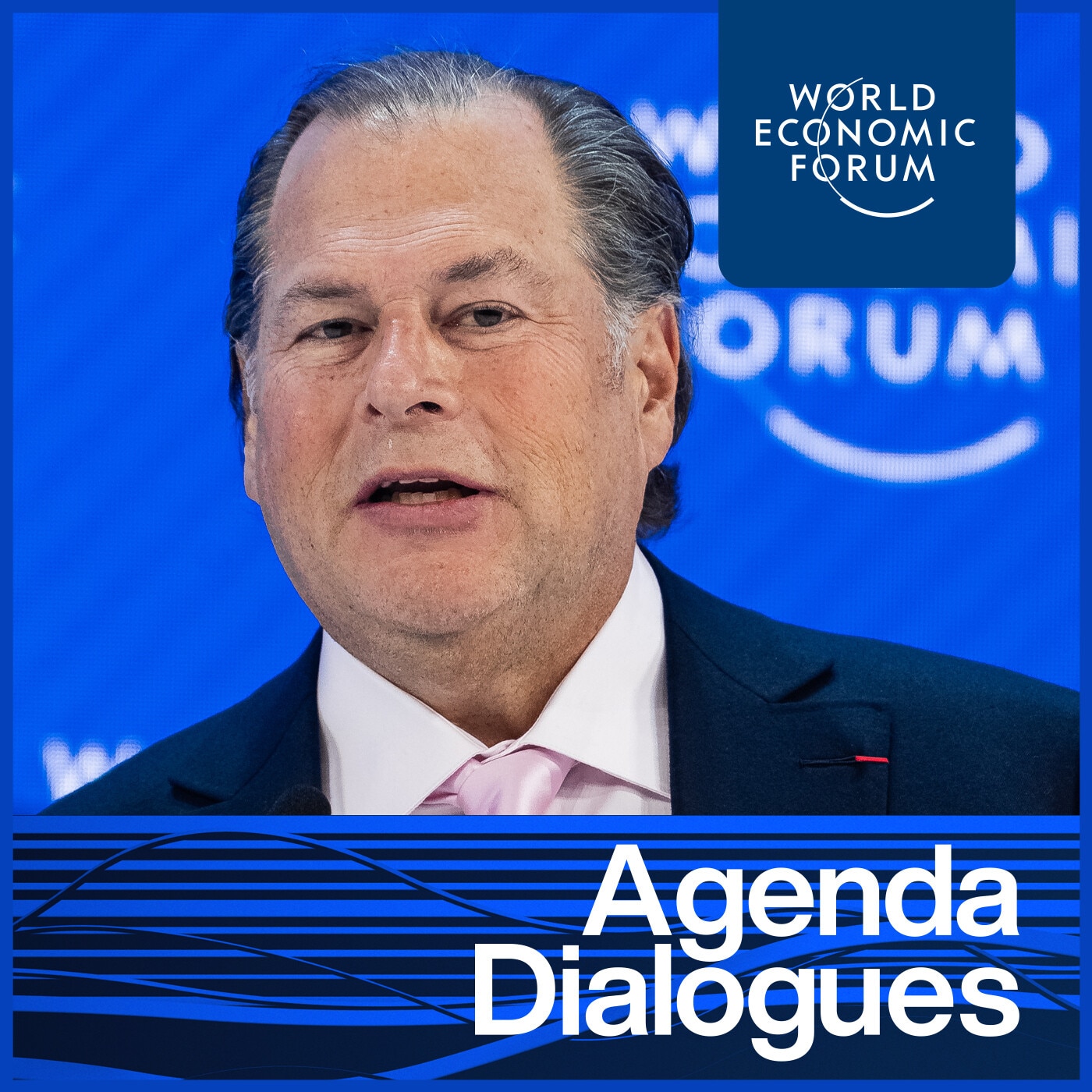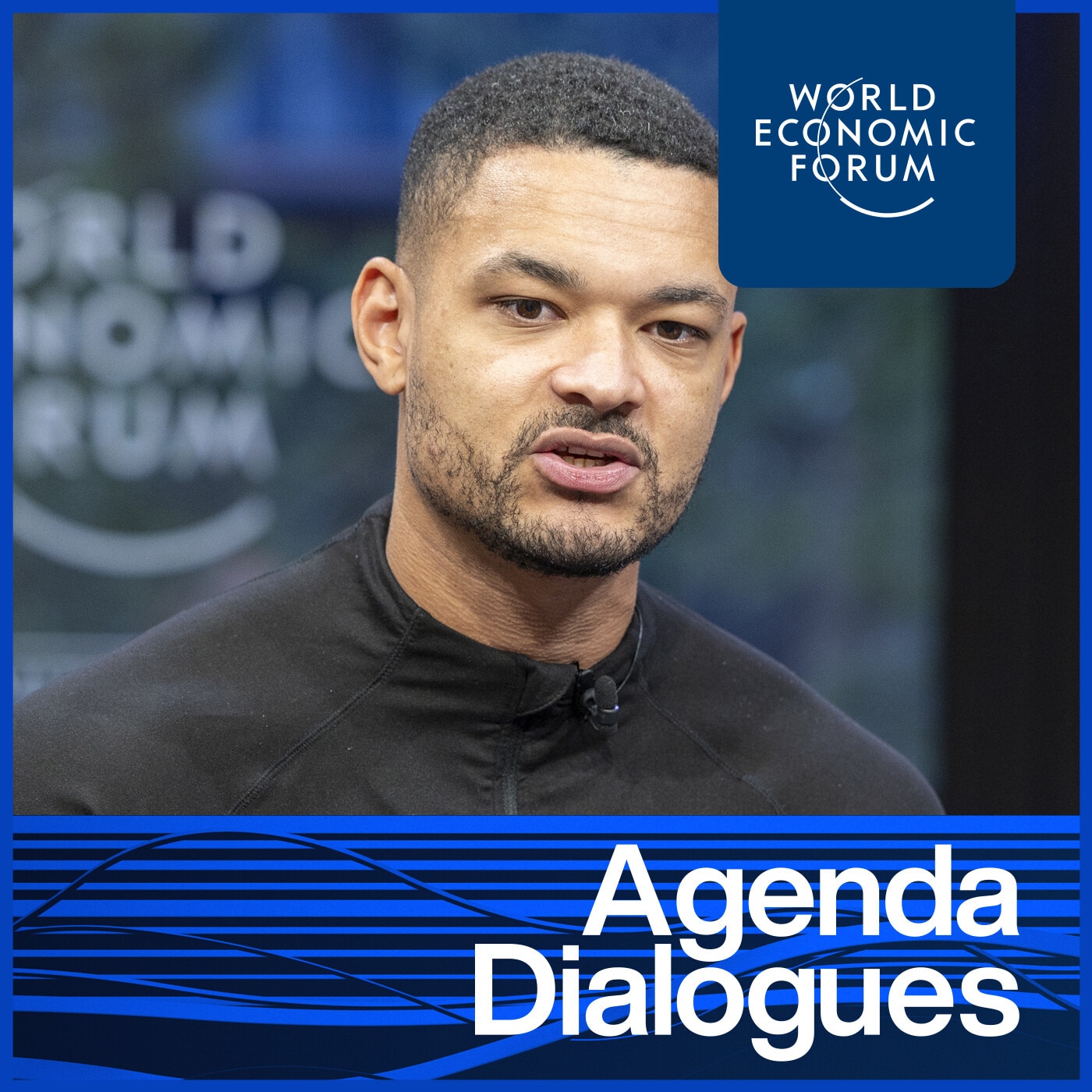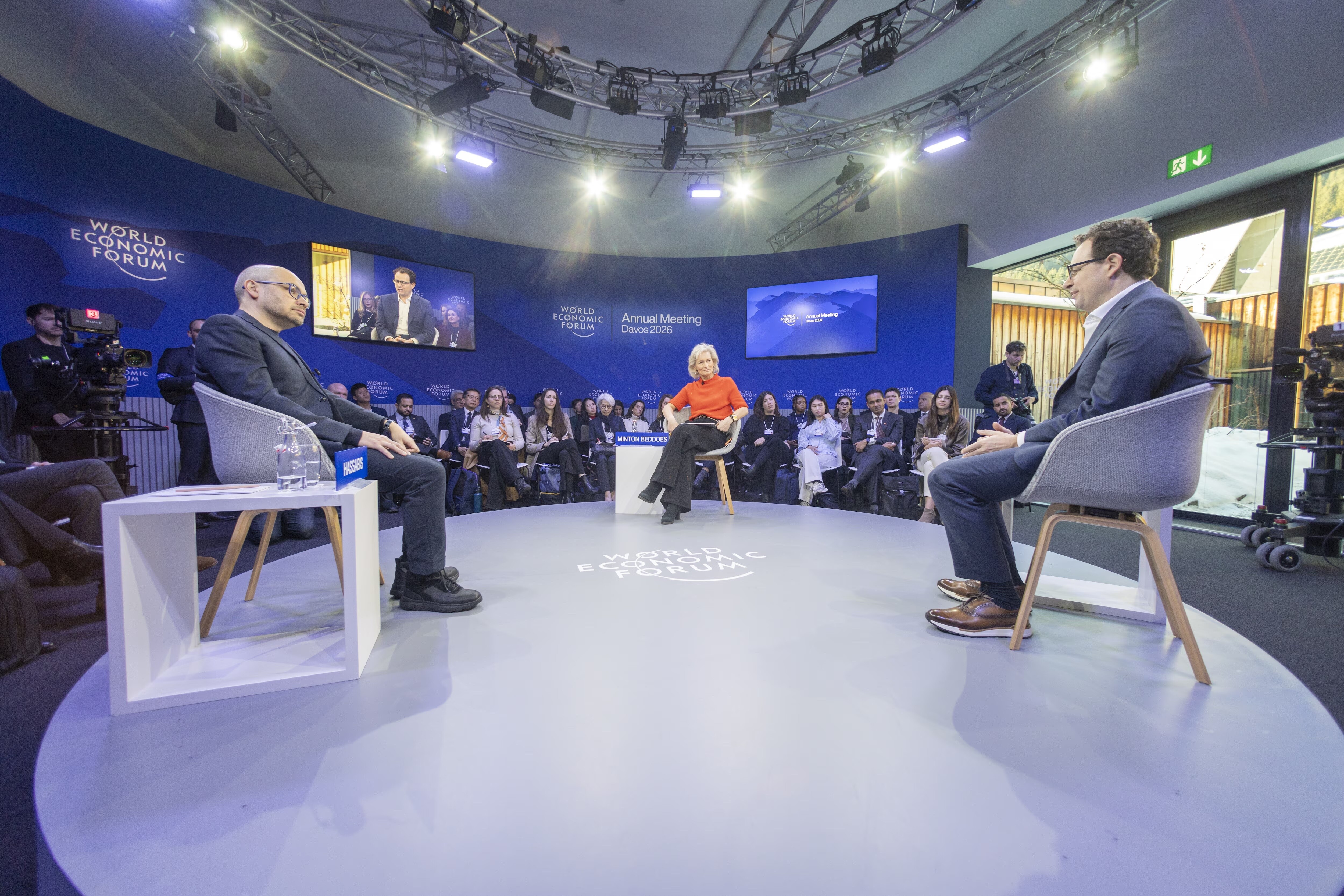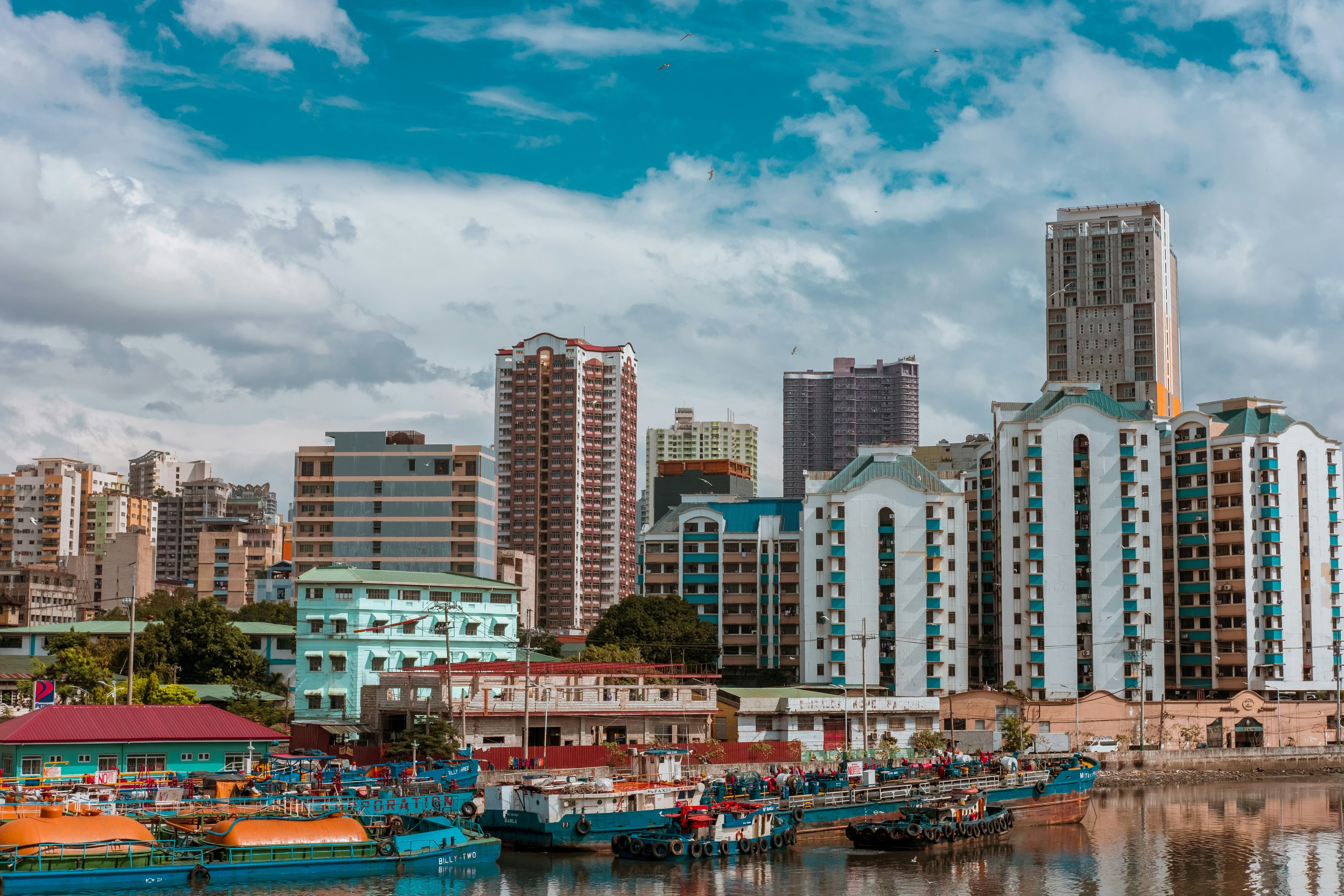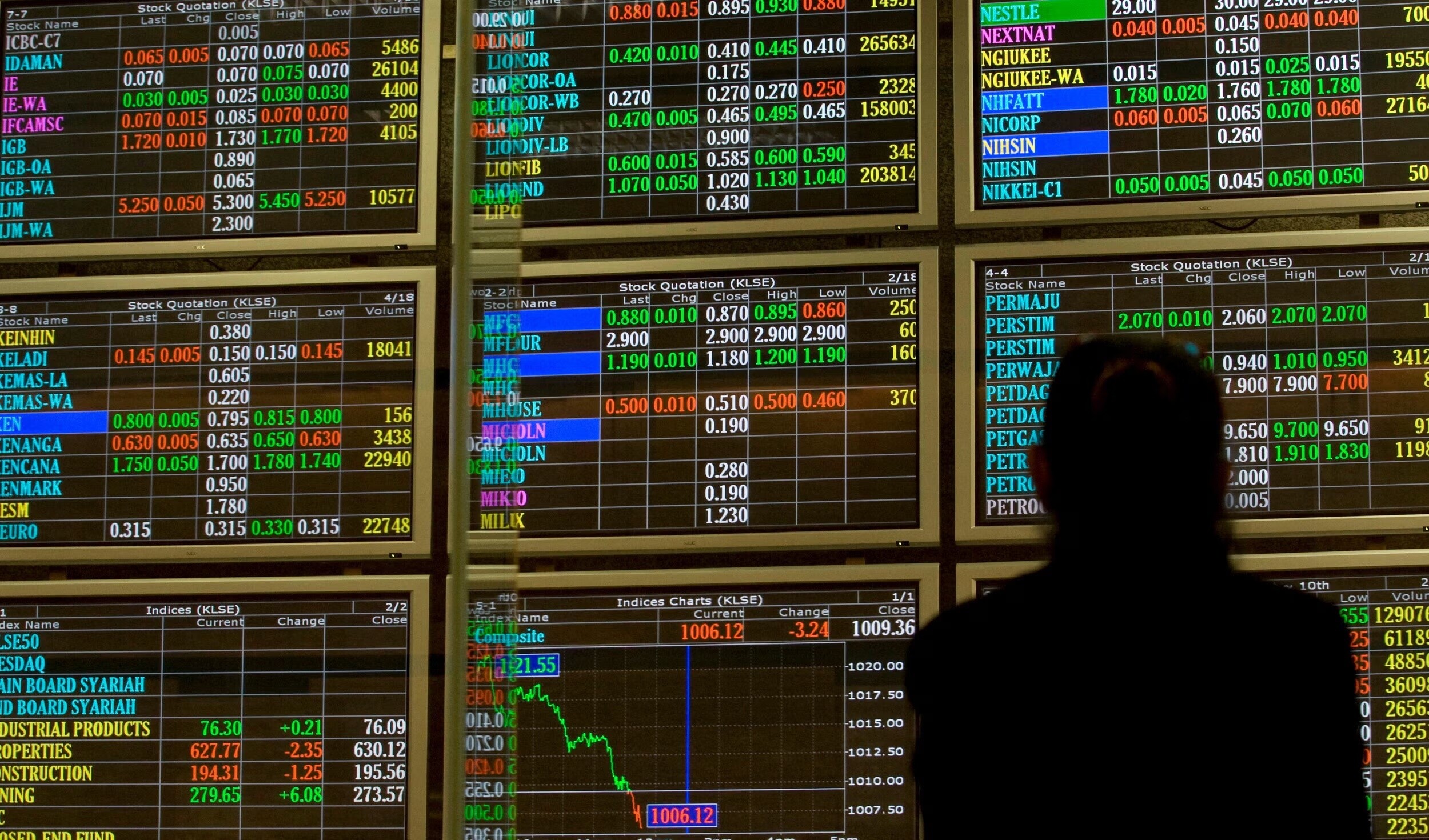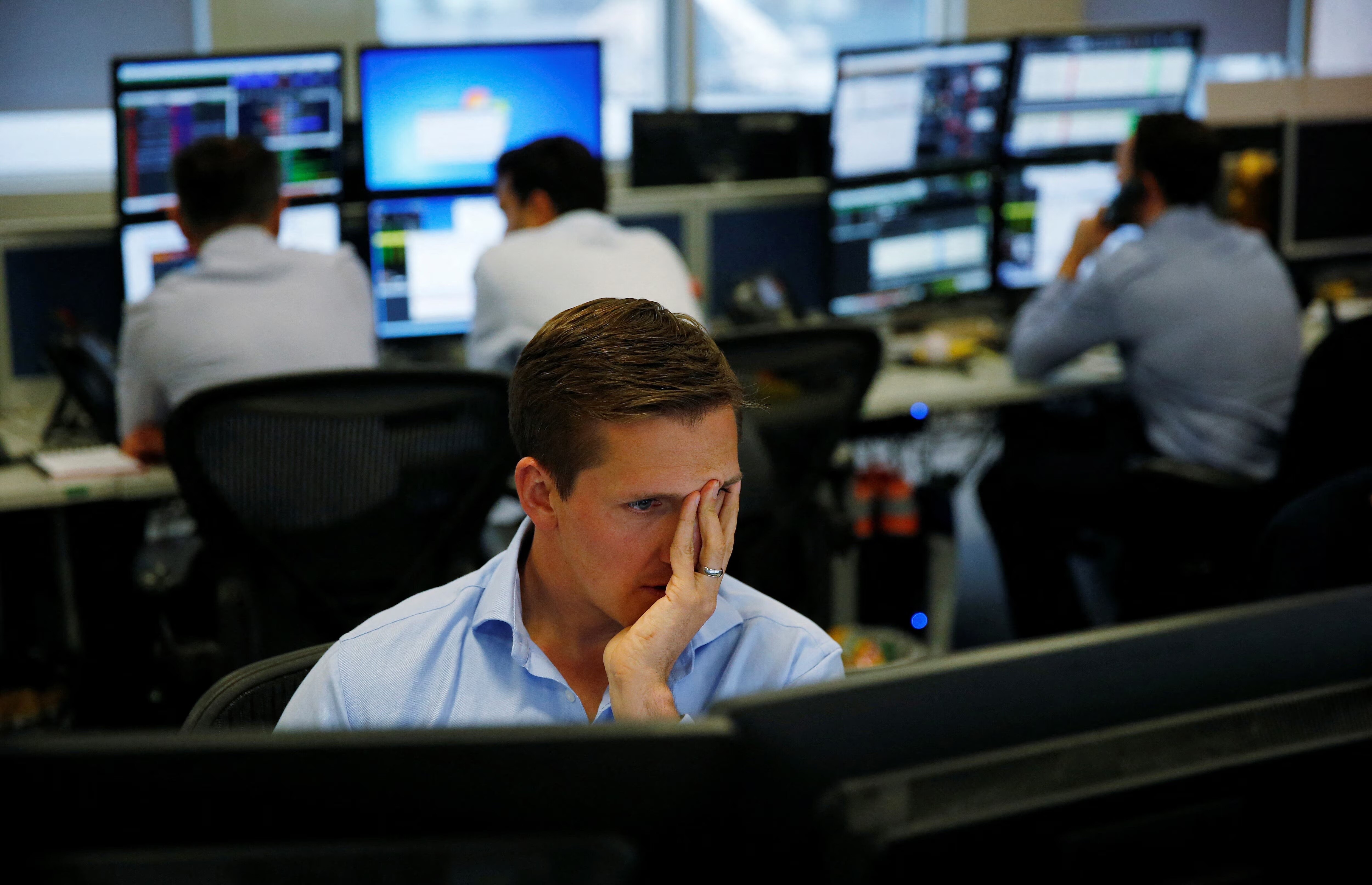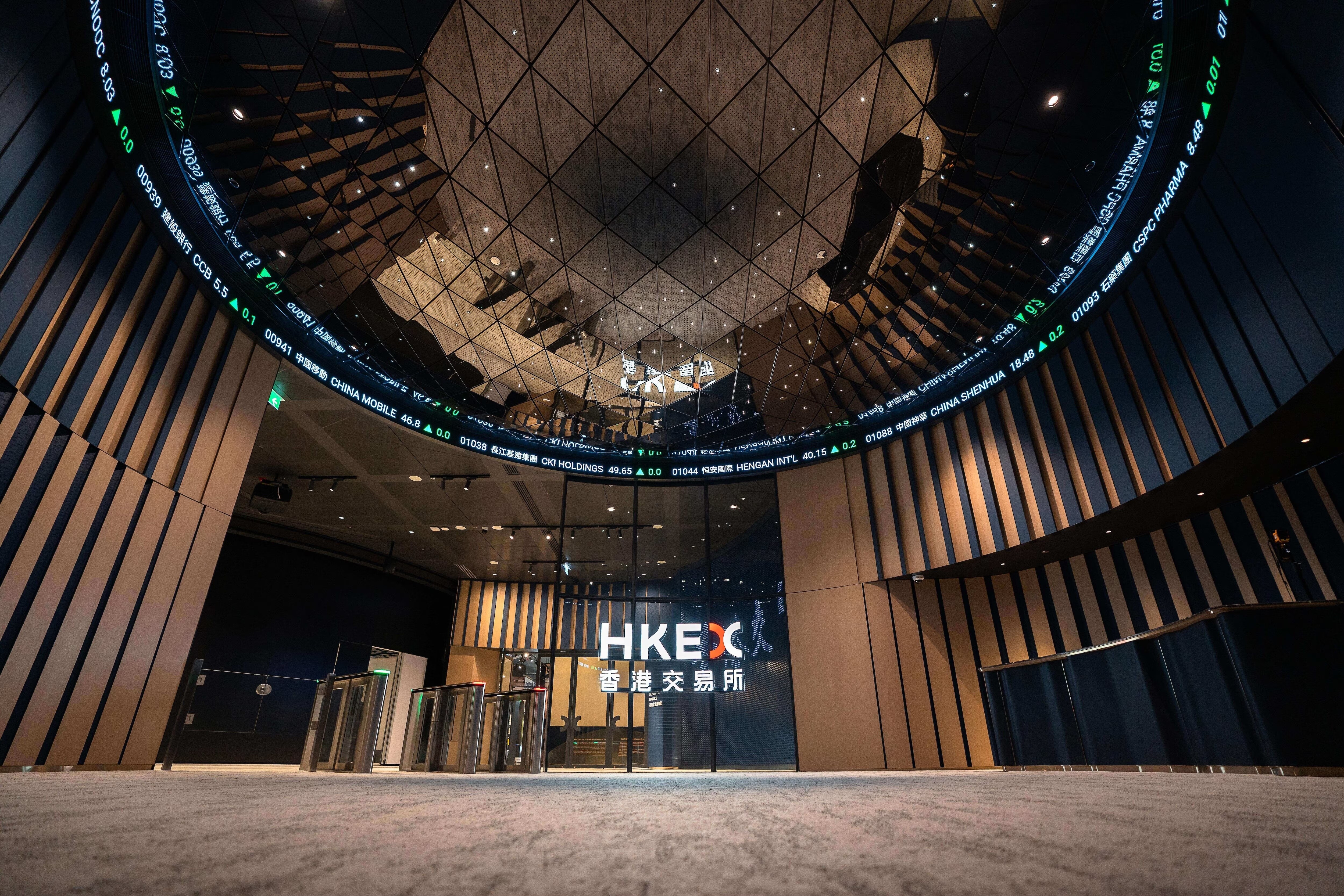Special Meeting 2024: What Kind of Growth Do We Need?
Transcripción del podcast
This transcript has been generated using speech recognition software and may contain errors. Please check its accuracy against the audio.
Joumanna Bercetche, Anchor, Bloomberg News: People tell me that over the course of the last five years, Saudi has changed so much. Riyadh has changed so much from what it was. And I guess that ties into the theme of today's panel, which is about growth. So, we're going to talk about growth in today's panel. I just want to go through a bit of housekeeping. If anyone is watching on livestream or if you are indeed watching us here in the room, feel free to tweet or X or threads or whichever social media platform you use. You can use hashtag #SpecialMeeting24 to talk about any of the panels that are taking place today. But of course, this panel in particular, feel free to tweet about it as well. So, the title of today's panel is what kind of growth do we need? And I just want to give you a bit of context before we launch into the discussion. One pillar or guiding principle of this special meeting is how to foster inclusive growth. So there are three pillars. One of them is how do we encourage inclusive growth. Now the World Economic Forum back in Davos launched an initiative, the Future of Growth Initiative, on how to incorporate other factors into a country's growth profile. So not just what you typically look at to analyze how a country is doing, economically, but also including other factors like the country's ability to innovate, be sustainable, be inclusive and be resilient. So, I'm happy to say that Saadia Zahidi, who I think is in the room somewhere, the Managing Director from WEF is going to tell us more about this initiative right at the end of our discussion today. So, we're going to pencil in just a couple of minutes to go over, this Future of Growth initiative. But for now, we're going to start off our discussion. And as I said, the focus is going to be about growth. So we're going to do a couple of rounds. For the first round, we're going to talk about how things are looking right now. What are the drivers of growth. How do we feel? Of course, Managing Director just back from the spring meetings. What are some of the near-term sensitivities to watch out for? And then we're going to launch into a discussion about the evaluation of the medium-term trajectory, a further analysis on the composition of the type of growth that we want to see. And so if there's one takeaway from this panel for everybody watching, the focus that we want to see is not just on the quantity of growth, but on the quality of growth, what type of growth do we want to see in the future. Right. I'm going to introduce the panellists now. No introduction needed. Kristalina Georgieva, Managing Director of the IMF. Thank you very much. His Excellency Mohammed Al-Jadaan, the Minister of Finance from Saudi Arabia. And thank you very much for hosting us. And we have, thankfully, have been Tengku Zafrul Bin Tengku Abdul Aziz, the Minister of Trade, Investment and Authority in Malaysia. Very good welcome to you. Managing Director I'm going to start with you, because I did mention that you're coming back from the Spring meetings at the IMF in D.C., rather, and it's always an interesting time to assess and take a look at how people are feeling about things. The IMF published the World Economic Outlook, and one of the lines that struck me from the report is that, you say, growth actually has been resilient despite many shocks. So, let's just start with that. How do you see things and what do you think are the biggest growth drivers right now?
Kristalina Georgieva, Managing Director, IMF: Let me start by congratulating Minister Al-Jadaan for taking over the responsibility to chair the committee of the IMF, the IMFC. That was his first meeting in the chair, and may I say he was brilliant. Substantively, we had great discussions and every single meeting ended on the dot. Doesn't happen often. During these meetings there were two big messages coming from the IMF. The first one is that growth has been resilient. The economy has been resilient. Despite the multiple shocks we were hit over the last years, we slightly upgraded our growth projections for 2024. Now it is 3.2%. In October last year it was 2.9%. We also recognize that the strength, the resilience of this projection comes from a small number of countries that are doing really well. United States is one. Some of the emerging market economies like India, Indonesia add to that. But the second big message from the meetings is that the divergence within country blocks and across country blocks and within countries is deepening. What we have is, in advanced economies, the United States is doing well, but the Eurozone is not. Within the emerging market economies. I mentioned India, Indonesia. Actually, I look at Malaysia. These are countries that are doing well. China, came a bit above expectations in its first quarter. But then we have a number of countries that are facing significant difficulties. Just to mention, some like Pakistan. Egypt is doing now better, but Egypt is also, faced with difficult environment. And then we have the toughest part of all: low-income countries falling dramatically behind. I want to give you a number — 3.3 trillion dollars. This is how much the world lost because of the pandemic. In this loss disproportionately, the low-income countries are most severely impacted. So, when we look at the immediate priorities. They are three. One: get inflation, in countries where it is still above target, down to target. Yes, we have achieved a lot in the fight against inflation. It is going down, down, down but not yet gone. Second: focus on rebuilding fiscal buffers. What has happened over the last years is countries used all the ammunition they had because of Covid than the war in Ukraine, than the cost of living crisis. But more shocks will come and rebuilding fiscal buffers is a priority, yet tough when countries are also faced with the need to support the digital transformation, the green transformation and to help vulnerable people. And three: let's find ways to cooperate more. Yeah, because fragmentation in the world economy is certainly bad for the prospects for growth.
Joumanna Bercetche: We're going to talk more about that. There's one thing that I want to pick up on though. You say inflation. And whenever anyone says inflation, I have a bell in my head that says interest rates. And I do want to ask you about that just before we move on because we're talking about current global growth drivers. A couple of months ago, I think the world was expecting the fed, the US central bank to go for as many as five, six cuts this year, the market has moved firmly away from that pricing, and maybe only just one cut by the end of this year. To what extent do you think these tighter financial conditions, these tighter monetary conditions are going to affect growth? Our panel is about growth, not just US growth, but of course, tighter financial conditions around the world are going to affect emerging markets too.
Kristalina Georgieva: It is a very significant factor. It is a factor because when you have high interest rates, then getting this rebuilding of buffers becomes even harder. And, we see higher interest rates genuinely impacting negatively growth prospects around the world. Second, high interest rates in the United States mean that money goes there. Why take risks in emerging markets when you can, put your money in US treasuries or just invest in us? Three, high interest rates means also strong dollar. And when the dollar is strong, the flip side is for many currencies that means currency depreciation. And that makes domestically fighting inflation more difficult. So, for the US, the path towards cutting interest rates in our view, in the view of the IMF, still remains open. We still think that we would enter 2025 in US with inflation finally, down to target and interest rates finally moving towards, lower levels. But let me say this clearly as I can: even with the start of interest rate cuts, it doesn't mean interest rates would fall down to where they were before the pandemic. So strong fiscal position, good management in all countries is a necessity.
Joumanna Bercetche: Okay, great. Well, there's lots to pick up on from there. Your Excellency, maybe I'm going to give you an open question just to start. I know you put together the budget for Saudi Arabia back in December, and you had your assessment of how you thought the growth outlook was going to pan out this year. We're a couple of months. The IMF are saying that growth has been relatively resilient despite the shocks. But of course, beneath the surface we're seeing some divergence. How do you see things versus where we were a few months ago?
Mohammed Al-Jadaan, Minister of Finance, Government of Saudi Arabia: First of all, thank you very much for being here and hopefully this will not be the last visit.
Joumanna Bercetche: Definitely not.
Mohammed Al-Jadaan: And thank you, Kristalina for being here also and Mr Abdul Aziz. A few things. I think globally, as we have heard from Kristalina. There are significant divisions. There are countries who are doing very well. And there are countries who are really struggling and there are countries in between. And therefore, if we are talking globally, we need to take that into consideration, that there are differences in positions between different countries in different regions. Second, I think the world, for the last four years, has seen multiple shocks. Multiple shocks. And those like us who had planned for the longer term, would need to be agile enough to make sure that they are adjust course dealing with these multiple shocks. So you need you need to make sure that you are not rigid. And I've always said in economic planning there is no egos. And so, it's okay to change. It's okay to adjust. It's okay to reflect on new circumstances that call for changes. And that to me is an advice that I would give everyone around the world, is that you need to make sure that, yes, you need the long-term plans, you need the vision like Vision 2030, it is actually very helpful not only for you as a government, but for the whole economy and for the wider even region and international investor community to see that actually, you have a plan and you are doubling down on implementation, but also you need to make sure that you adjust. So, with inflation, well with Covid and the serious supply chain disruption, and then inflation resulting from this serious also quantitative easing that happened as a result of Covid, and then interest rate hikes and then geopolitical tensions, which are unfortunately increasing rather than decreasing. To me, today, geopolitical risks are possibly the number one risks. If you look at the global economy at large, because it's not only the geopolitical. The geopolitical tensions brings with it things that are directly impacting the economies, which is fragmentation, protectionism, using economy as a serious tool to achieve geopolitical objectives in terms of limitations on trade limitations, limitations on technology, etc. So, this will need to be looked at and policymakers will need to be very agile in dealing with this. My advice and I will be very brief is one is in the longer term, regardless of what's happening today, because we have seen, you know, geopolitics happening for decades, we have seen World War One and World War two and, Cold War, so you need to focus first of all, on your own people and the human capital development. This is a long-term play that is critical. Human capital is very, very critical, unfortunately I can say this and possibly have the means to do it, in Saudi and in this region, but there are a lot of countries who would find it very difficult to provide quality education, quality healthcare to their people. Second, which is very important, and that I'll cover also the low-income country part of it is innovation and technology. If there is one tool that will actually fuel growth, quality growth, it would be innovation and technology. Again, there are countries who will be able actually to do that, provide the policies and have the resources to actually implement innovation and technology. There are other countries who doesn't have electricity for most of their population. So, you will not talk about technology. You will not talk about innovation. Just provide them the basics. That said, multilateral institutions have a role to play, i.e. not leaving these countries behind. Making sure that we provide the support, and Saudi Arabia can tell you, our contribution in terms of aid and support is significantly more than our GDP percentage out of the global GDP. And that is very, very critical really to look at in the global scene. Finally, and I think this is very important and something that is dear to my heart, we've been talking about it at the IMF, is debt sustainability. You cannot expect people to focus on growth when they are really crushed with debt. And there are countries who are finding it very difficult, actually, to provide the basics to their people because of the debt. So, we need to make sure that we help. The common framework that started during our presidency of the G20 is moving in the right direction. We need to make sure that it moves a lot faster. I'll stop there.
Joumanna Bercetche: Yeah. Well, the last time you and I were on a panel, it was also a panel about debt sustainability and debt reform. I do just want to, you know, follow up and talk about specifically the geopolitical tensions within the region. The war in Gaza is on many people's minds. And key, as I understood from what you're saying, is we need to see stability in order to enact these longer-term plans that we have for growth, for medium-term growth, for raising the living standards. What impact are you seeing from the war and the tension in the region right now?
Mohammed Al-Jadaan: I think I will try to be very brief. It is very, very unfortunate to see, loss of lives, wherever that is. Civilian lives are important, whether it is in Ukraine or in Palestine or elsewhere. And therefore, you know, when you have conflicts of this nature in your region, it puts a lot of pressure and the emotions and the mood. And it is not a secret that economy is impacted by the mood. Economy is impacted by perception, by sentiment. Second, I think cool headed countries and leaders and people need to prevail, and you need to make sure that you actually de-escalate and do everything we can. And Saudi Arabia can tell you, for the last several years, we made it a very clear strategic objective that we de-escalate in the region. The region needs stability. The region needs really to focus on its people and its growth and its economy, rather than really focusing on politics and conflicts. But overall, I am optimistic by nature, and I will continue to be. I think we need to work hard and push our friends and work with our allies around the world to bring more stability in this region, but also beyond.
Joumanna Bercetche: Minister, I'm going to turn to you. One of the, I guess, big downward surprises to growth last year was the faltering growth out of China, the property downturn specific to China, but also affected the region as well. So, from your standpoint, just give us a sense of how these past 12 to 18 months have played out in the somewhat disappointing post-Covid recovery that we got out of China. What impact has that had on the region?
Tengku Zafrul Bin Tengku Abdul Aziz, Minister of Investment, Trade and Industry, Government of Malaysia: Well, first of all, like to say thank you to the Minister Al-Jadaan, for hosting us here. It's been great so far. But let me just touch a bit on the growth that we've been talking just now. Kristalina mentioned it, the Minister also mentioned it. For policymakers it is actually very difficult to strike a balance between quantity growth and quality growth. Right. And for us, we need to ensure that growth is sustainable. Growth is inclusive. Growth is good to build. And also growth is resilient. And because all these factors will ensure there will be global prosperity and global stability. We touched on that. Right. So for the region, for Southeast Asia, if you look at Southeast Asia, it has been a net beneficiary in the last couple of years. In fact, the last four years you've seen FDI doubling, because of the flows. I mean, why perhaps it started with Covid. There was concern about supply chain resiliency, supply chain security. And then this issue that you just mentioned about China, the strategy of companies, strategies of industries where there's the China Plus One. I mean, we've seen that as well. And ASEAN, being very neutral in many of its position, you know, has been attractive, for many institutional companies to relook at strengthening their supply chain. So for ASEAN, just to give you a bit of a perspective of ASEAN, Malaysia, of course, is one of them. Growth has been around 4-5% and it is expected to continue that trend. And that is really the fastest growing bloc. We have the fifth largest economy block. Population of 680 million people. GDP of $3.7 trillion. And we as a member of ASEAN, also recognize the importance of growth to be inclusive. So, one growth of one ASEAN nation, should not be at the expense of another. And how do we do this? I mean, of course, I think IMF recently just talked about the growth in global trade this year. I think this expected growth stronger than last year, if not mistaken, 3.3% this year. Last year was around 0.3%, the lowest in 50 years. And ASEAN, as a group of nations, look at their trade to GDP, it is all about 100%. Malaysia is course open economy, Singapore, etc. So, we are in the right, position to leverage and, well, opportunistic in a way, to ensure that we ride on this — so, back to the question — with China. China is ASEAN's largest trading partner. In fact, it is Malaysia's largest trading partner for the last 15 years. Just to give you the figure of Malaysia/China. Total trade with Malaysia China, China is about 17% of Malaysia’s total trade. It is an important, part of ASEAN as well. And if we look at intra-Asian, which is again important, because as economies within ASEAN integrate better and deepen further, that will bring stability as well. So unfortunately for ASEAN intra-trade, within ASEAN, is around 20 to 20%. So there's room for improvement. Plus, there's a lot of multilateral agreements being signed, I think I think ASEAN has also engaged GCC last year, for the first time, and we're going to continue to engage GCC. In fact, we have a forum after this, GCC ASEAN. And again, we have seen also big flows from Europe and US. For us, we need to ensure, because when I talk about quality and quantity just now, what we are seeing is that that quantity of growth, you know, I mentioned 4 to 5% Malaysia last year was around 3.7%. This region’s around 4 to 5%. But is that growth even, within the nations and within the industries? So, when we look- as policymakers, we have our plans. But again, as Minister Al-Jadaan said, it's all about implementation. It's about execution. So, let's look at industries around ASEAN. We need to ensure that they move to the next level. How do they do that? They need to increase, complexity, economic complexity of their industries. Economic complexity of their economy, which will then lead to increase in wages, increase in household income. And therefore, in a way, will bring much more stability as well. So, because sometimes you repeat this 4 to 5%, but then when you look at, go down on the ground, without any policymaker intervention, there will be uneven growth across countries and across sectors. So, we need to settle that one. The other one, the thing you mentioned about technology innovation that's going to be key for the region as well. Because, to ensure that, you know, from a perspective of Minister of Trade, not only physical infrastructure is important, but also digital infrastructure. Again, some countries are in a stronger fiscal position. And as you mentioned, we were also affected by Covid, given the fiscal space at that time was utilized quite fully, in fact, by some nations. You see the debt to GDP of many countries has gone up quite considerably. But growth is going to be key to alleviate, to mitigate, that impact. So to me, we need to ensure economies continue to grow. That the growth definitely must be more even, sustainable. And finally, like it or not, the region also needs, to ensure that to achieve sustainability, you need to also embrace, the green economy. So, this is where ASEAN again are investing a lot in this and with China and with Europe, with US, we I mean, look at China and US it is already even nearly half of the world's GDP, right? So, ASEAN will have to work closely with both, powers and of course, Europe and the rest of the rest of the world as well.
Joumanna Bercetche: Right. Thank you. Well, I think you may have slipped in the term geoeconomic fragmentation. Or maybe it's just imprinted on my mind because I've attended many of these IMF meetings, but I am going to go there. I know you've done a lot of work on it. It [inaudible] has spoken about it a lot. But one of the themes that has emerged the last couple of years is there is a tendency now for economies to become more protectionist. There's a feeling that, you know, at a state level, you want to bolster the national economy at the expense potentially, of trade with some of your close allies. You know, you see it in the US with Inflation Reduction Act, you see it in China with the push for the transition. The state is playing an ever, increasingly large role in terms of driving economic activity. And I just wonder if you look about it again and through the lens of growth, because that's what our panel is about, whether ultimately this is a good thing. Is this going to lead to the growth outcomes that we would like to see?
Kristalina Georgieva: When we look at the trajectory, as of now, it is a rather depressing story. Medium-term growth is weak by historic standards. I compare this trajectory to a ski slope. So, we expect if the previous decade average growth was 3.8%, we expect this decade growth to be around 3%, much lower than before. Why is this happening? It is happening for two broad reasons. One is not enough productivity to lift up growth. In fact, we did some analysis, it says productivity is half of the reason why we have this slowdown of growth in advanced economies and big emerging market economies. Almost all of the slowdown in low-income countries. Investing in people, investing in innovation. This is a must if we want to see productivity coming up. The second reason is geoeconomic fragmentation. Our analysis shows that if we bring the power of trade and access to finance in a more open and inclusive manner, by the end of the decade, global growth can go up by 1.2%. In other words, all this growth loss from the previous decade can come back. Would it happen? It depends very much on the way in which we approach the question of security of supplies. That is genuinely one policymakers are wrestling with. Covid and the war in Ukraine told us that relying on a single source for your supplies is potentially catastrophic, that diversifying the supply chains is a must. That some redundancy in supply chains is a necessity. The question is, are we going to do what is necessary and not more? Or we would go further? And at this point the indications are troubling. We have seen over the last years trade restrictions quadrupling. And when we analyze industrial policy measures, 2500 of those have been taken over the last years. 17% of them are trade disrupting, negative for trade, measures. So, we have industrial policy that may be justified because you want to accelerate decarbonization. That was the logic behind some of the measures today. Yes, but are you doing it wisely? And the jury is not out. The jury has pronounced itself. We are going too far in that direction. What do we do at the IMF? What we are doing is we are providing the analytical underpinning for decisions that would strengthen supply chains, that would bring some of the benefits of industrial policy. Let's remember, industrial policy is justified when there are market failures and the state steps forward to correct them. But please don't do more than it is necessary. Why? Because then what we end up with is misallocation of resources of capital and labour. And when that happens, guess what? We're poorer. So, our, I appeal to rational decision making that recognizes no more we can bring that notion of just in time as the only one. No more we can look only at cost considerations when we design supply chains. But don't go overboard. Don't throw this beautiful trade baby with the bathwater.
Mohammed Al-Jadaan: Joumanna, may I comment? I think this is actually very critical. Two things actually to note. One is there is a very heavy price for fragmentation. That is going to be paid by everybody around the world, which is inflation. Fragmentation means redundancy, means inefficiency, which means higher costs. So, it's not about, you know, competitiveness and who's the cheapest will be provided to the world, but rather really through protectionism you will get actually more expensive, more inefficient industries being protected, which means really inflation. And then you get into this vicious cycle. The second is obviously we need as, Kristalina said, we need to de-risk the supply chain. But then there is a big difference between de-risking supply chain and then using it as a geopolitical tool really to hurt your opponents. I've said in the previous WEF meeting and I think in our IMF Marrakesh meeting that I was and have continued to be optimists. I think people are feeling countries are feeling the pain of actually fragmentation. I hope wisdom would prevail and they would correct course because unfortunately, what we are seeing even until today as we speak, more negative actions being taken that are really not economically driven to de-risk, but rather, you know, driven by politics.
Joumanna Bercetche: I want to ask you a Saudi specific question because, you know, we're here, we talk about the Saudi 2030 Vision. And of course, that's a very good example of a medium-term growth plan. And a big part of that, the pillar, is bolstering the non-oil economy. And if you look at the numbers last year, of course, you know, Saudi Arabia went through a challenging year economically, but the non-oil sector was the outperformer versus the oil sector. Have you had to reassess the medium-term plans because of the factors that we were talking about earlier. And you said you know there's no ego with your planning. When the facts change, obviously you have to change your plans as well. Have you had to say, mark to markets, your expectations of what you can achieve with the Saudi 2030 vision?
Mohammed Al-Jadaan: The short answer is absolutely yes. But let me just clarify two things that are very important. Vision 2030 is about actually the non-oil GDP. And to the point of His Excellency about quality and quantity. Saudi Arabia is able, and was able last year, to make the growth 10% GDP. Literally. And I'm not exaggerating, okay. We produce 9 million barrels a day of oil last year, we could have actually put the accelerator on and produced ten. That will give us about 8% GDP growth. And we could have even accelerated more and produced 11. And that would give us 15% GDP growth. And if we wanted to accelerate more, we have the capacity to produce 12.
Joumanna Bercetche: That's the maximum.
Mohammed Al-Jadaan: And that will give us 25%. And they can make this year on year 10% for the next five years. But this is not a quality growth. This is quantity growth. Okay. What is important for us is the non-oil GDP. The non-oil GDP has actually, even last year when we saw our GDP, total GDP almost flat, almost zero. Actually, non-oil GDP grew at 4.4%, which is very healthy, compared to the world. So that is really the focus. Vision 2030 is about empowering private sector, which is a point I missed on the first point you asked. Private sector enablement is key. And any plans that you put forward, the government role is to be out of business. The government role is to make policies to enable the private sector, but not to actually do the business. It's the private sector business. And if we are able to do the right policy structure, you will enable the private sector, you will actually have sustainable, more inclusive growth. That's what the Vision 2030 is about. And I can tell you half way now, we are actually very pleased. We are not complacent, but we are very pleased with what was achieved. Then I think the half journey report was announced yesterday, the day before, where actually 87% of the targets are on track. A lot of targets have been over delivered. And there are challenges, obviously, and this is why I said we don't have ego. We will change course. We will adjust to the extent some of the projects. We will downscale some of the projects, we will accelerate other projects.
Joumanna Bercetche: Well, we don't want you out of business because then I won't be able to talk to you.
Kristalina Georgieva: He will be then doing the business of government. Facilitate private sector's growth.
Mohammed Al-Jadaan: Absolutely.
Tengku Zafrul Bin Tengku Abdul Aziz: Can I expand a bit on what Kristalina has said about trade. I was in Abu Dhabi, at the MC13, the WTO meeting, many talked about, this year will be slightly better, more optimistic about things. But at the same time there is concern about, yes, geopolitics is definitely an issue being used as, you know, technology, security, etc., but also about non-tariff barriers under the name, under the pretext of sustainability. There will be socio economic impact if that transition towards sustainability using trade parameters where, you know, for example, a country that may not be ready, to meet the conditions of sustainability, through capacity, issues, not just monitoring issues, but unique capacity building at the same time. Then you will see that that growth that we're talking about today, will not be an inclusive one. So, I think, from Malaysia we have 14 bilateral multilateral FTAs. So we are in many of those discussions and we are seeing that sometimes we need to be very careful. You talk about, yes, supply chain resiliency, supply chain security, and therefore you have in fact, sometimes very explicitly, three trade barriers. But the non-trade barriers are also increasing. And this will affect the quality of growth that we want to see because, we are seeing more and more countries, especially developing countries and LDCs [Least Developed Countries] as well, finding it difficult to meet those standards. And it will have an impact to them. I'm not saying that they shouldn’t aspire to meet, but I think the transition to meet that standards has to be done equitably. You need to get the more developed nations to be also participating in this..
Kristalina Georgieva: Just one addition to that point, it is a slippery slope, once a measure is taken by one country. History says 75% probability reciprocity from other countries. So where do we end? In a very bad place.
Joumanna Bercetche: Final question, that I'm going to put to both of you, because I know this is a subject close to your heart. What is the type of cooperation we need to see between richer countries and lower income developing countries?
Kristalina Georgieva: Fair. And that means poor countries also have to do their part. They need to collect taxes. They need to fight corruption. They need to improve the quality of spending. They need to demonstrate that they are committed to their own people. And, the, response must be that they get a huge deal of international support in debt restructuring, in helping them to meet their financial needs with support from outside. It is genuinely the moment to recognize that we are in this small boat called the world together. And we cannot say, the rich countries cannot say to the poor, oh, you know what? Your side of the boat is leaking. We would all sink.
Mohammed Al-Jadaan: Well said. Well said, Kristalina. I would not have said it better. I think two things. One is there is a promising, I can tell you, there is actually a promising trajectory in empowering multilateral development institutions like the IMF and the World Bank. And what is even more interesting and helpful is there is significantly better coordination and cooperation between them. And I've seen it first hand recently. Where they actually almost have a task force collectively to help individual countries that are in need. And I've said this before, and I will repeat it again. Without an extensive reform without countries who are recipients of the support doing their part as Kristalina said, I think we will just be putting good money after bad. So, we need to make sure that we encourage them not only with providing financial support, but also technical support and making sure that we develop their own people to actually do the right thing. Second, I think this is very important. We should avoid forcing them to make a choice between two countries or two groups of countries. I think it is very difficult to go to Africa and say, listen, if you want us to help you, you need to stop dealing with China or if you want us to help you, you need to stop dealing with the G7 or the US. That is not a fair choice to put before them because they need all the help they can, whether it is from the south or from north. And I think we are seeing actually a better way of approaching this now, although I think we can look for more.
Joumanna Bercetche: Yeah, well that's a good place to leave it. We've gone through a lot already on this panel about the now, the future due economic fragmentation, some of the barriers that are going up. I think we all agree that, too many barriers is not a good thing. It could be inflationary and the importance of cooperation. I started off this panel by saying that we're going to end with a couple of minutes, from Saadia Zahidi who's the managing director of the World Economic Forum to talk us through the initiative, the Future of Growth Initiative, but before we do that, I just want to thank the panellists so much. I really enjoyed this discussion.
Unidentified: Thank you. Management Directors, your Excellencies. I really appreciate it.
Joumanna Bercetche: The floor is yours.
Saadia Zahidi: Thank you very much, Joumanna, and thank you so much to all the panellists for this very rich, discussion and really the right one to get us started for the next two days of conversation here in Riyadh. We kicked off in Davos the Future of Growth Initiative. It's a two-year set of work, and there are three ways that we invite you to get involved. One is the data that is helping provide a dashboard for countries to look at both quantity and quality measures. You can download that here in this room and continue to stay involved in that conversation. No data is perfect, but we're trying to get that conversation started. The second way is the global conversation around what should be the right framework for looking at quantity and quality growth. Please join the The Growth Consortium. Please join the dialogues on that. That will continue over the course of the next two years at every activity that the World Economic Forum will be holding. And then the third way is country level dialogues, because there is an element of that that has to be customized. And we will be kicking off with at least five countries this year, country specific dialogues and more to come over the course of the next year. So, thank you again to all the panellists for the conversation and please join this to your initiative and not.
Mohammed Al-Jadaan: Thank you.
Scroll down for full podcast transcript - click the ‘Show more’ arrow
The recent sustained slowdown in growth has been compounded by a succession of crises and dislocations. What approaches are needed to reignite growth while shifting to a better balance between quantity and quality?
This is the full audio from a session at the Special Meeting on Global Collaboration, Growth and Energy for Development in Riyadh on 28 April, 2024. Watch it here: https://www.weforum.org/events/special-meeting-on-global-collaboration-growth-and-energy-for-development-2024/sessions/what-kind-of-growth-do-we-need/
Speakers:
Tengku Zafrul Bin Tengku Abdul Aziz, Minister of Investment, Trade and Industry, Ministry of International Trade and Industry of Malaysia
Saadia Zahidi, Managing Director, World Economic Forum
Mohammed Al-Jadaan, Minister of Finance, Ministry of Finance of Saudi Arabia
Kristalina Georgieva, Managing Director, International Monetary Fund
Joumanna Bercetche, Anchor, Bloomberg News
Special Meeting 2024
This episode is related to the Forum’s Special Meeting on Global Cooperation, Growth and Energy for Development held in Riyadh on 28-29 April 2024.
Related podcasts:
Check out all our podcasts on wef.ch/podcasts:
Temas:
Crecimiento EconómicoMás episodios:
La Agenda Semanal
Una actualización semanal de los temas más importantes de la agenda global
Más sobre Crecimiento EconómicoVer todo
Ian Shine
11 de febrero de 2026
